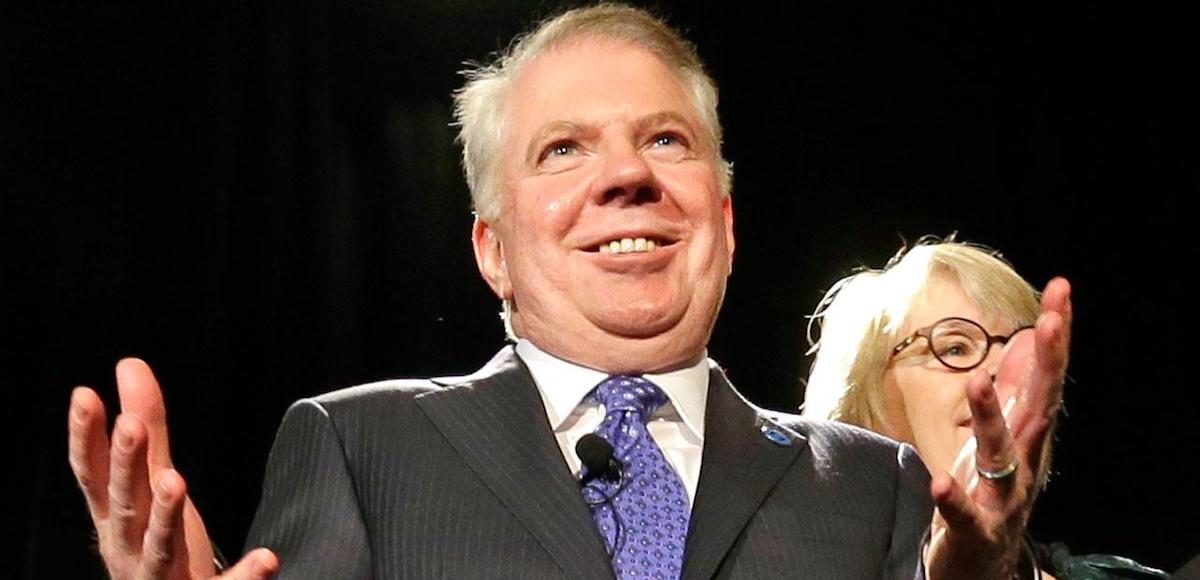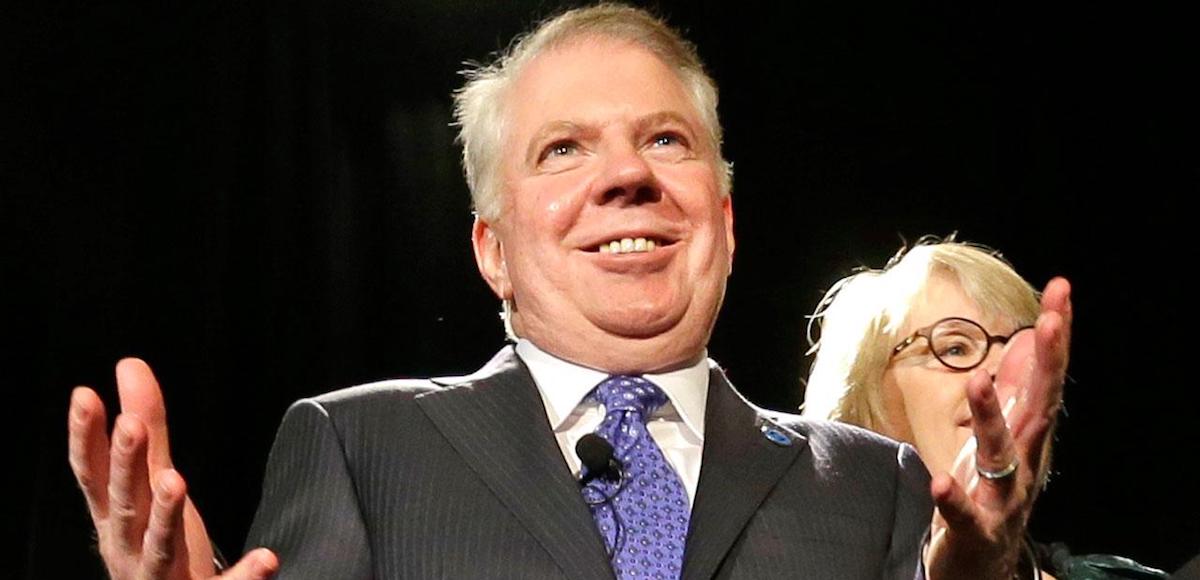

Seattle Mayor Ed Murray, center, motions as he stands with other city officials following an inauguration ceremony for city officials Monday, Jan. 6, 2014, in Seattle. (Photo: AP)
I don’t like the income tax that’s been imposed by our overlords in Washington. Indeed, I’ve speculated whether October 3 is the worst day of the year because that’s the date when the Revenue Act of 1913 was signed into law.
I don’t like state income taxes, either.
And, as discussed in this interview about Seattle from last week, I’m also not a fan of local income taxes.
[brid video=”153224″ player=”2077″ title=”Dan Mitchell Discussing Seattles SelfDestructive Income Tax”]
From an economic perspective, I think a local income tax would be suicidally foolish for Seattle. Simply stated, this levy will drive some well-heeled people to live and work outside the city’s borders.
And when revenues fall short of projections, Seattle politicians likely will compensate by increasing the tax rate and also extending the tax so it is imposed on those with more modest incomes. And that will drive more people out of the city, which will lead to an even higher rate that hits even more people.
Lather, rinse, repeat.
Though I pointed out that this grim outcome may be averted if the courts rule that Seattle doesn’t have the legal authority to impose an income tax.
But I also explained in the discussion that a genuine belief in federalism means that you should support the right of state and local governments to impose bad policy. I criticize states such as California and Illinois when they expand the burden of government. And I criticize local entities such as Hartford, Connecticut, and Fairfax County, Virginia, when they expand the burden of government.
But I don’t think that Washington should seek to prohibit bad policy. If some sub-national governments want to torment their citizens with excessive government, so be it.
There are limits, however, to this bad version of federalism. State and local governments should not be allowed to impose laws outside their borders. That’s why I’m opposed to the so-called Marketplace Fairness Act. And they shouldn’t seek federal handouts to subsidize bad policy, such as John Kasich’s whining for more Medicaid funding.
Moreover, a state or local government can’t trample basic constitutional freedoms, for instance. If Seattle goes overboard with its anti-gun policies, federal courts presumably (hopefully!) would strike down those infringements against the 2nd Amendment. Likewise, the same thing also would (should) happen if the local government tried to hinder free speech. Or discriminate on the basis on race.
By the way, it’s worth pointing out that these are all examples of the Constitution’s anti-majoritarianism, which helps to explain why the attempted smear of James Buchanan was so misguided.
The bottom line is that I generally support the rights of state and local governments to impose bad policy, so long as they respect constitutional freedoms, don’t impose extra-territorial laws, and don’t ask for handouts.
And I closed the above interview by saying it sometimes helps to have bad examples so the rest of the nation knows what to avoid. Greece and France play that role for the industrialized world. Venezuela stands alone as a symbol of failed statism in developing world. Places like Connecticut and New Jersey are poster children for failed state policy.
And now Seattle can join Detroit as a case study of what not to do at the local level.






